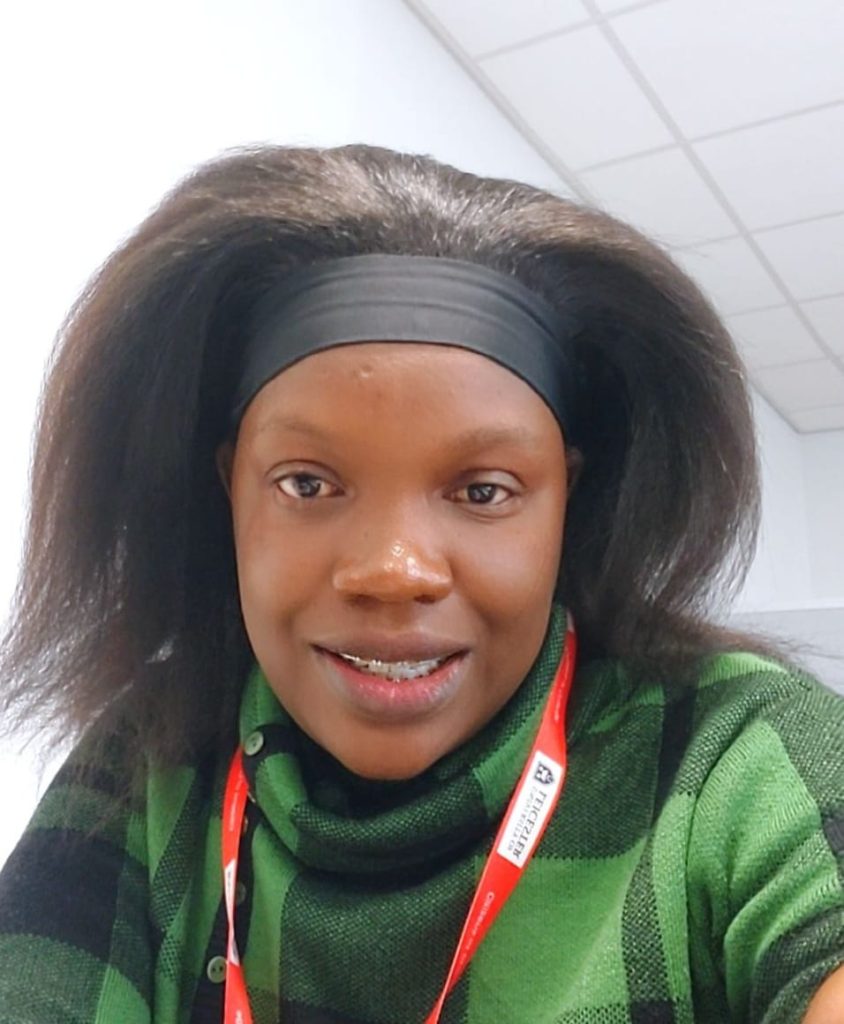In this spotlight we learn about PGR representatives Katie Lucas (CSE/Geography) and Lindah Wakhungu’s (CSSAH/Criminology) recent experience of collaborating with LIAS and academics from the University of Leicester and Durham.
Lindah Wakhungu

As a scholar researching Green Crimes in the School of Criminology at the University of Leicester, I recently had the enriching opportunity through LIAS to visit the Institute of Advanced Studies at Durham University. This visit came as part of a growing collaboration between LIAS and the Durham IAS, aimed at fostering interdisciplinary exchange and engaging underrepresented communities through innovative methods like walking. The one-day interdisciplinary forum was “epic”…a melting pot of ideas that offered unexpected insights into something seemingly simple: walking.
What stood out for me was not just the academic discourse, but the profound ways walking has been reimagined, applied, and researched across different fields. Far beyond a basic mode of transport, walking emerged as a lens through which connection, healing, cognition, and even social equity can be viewed. The forum-introduced categories of walking that resonated deeply: walking to connect, walking to focus, and walking to unwind. These modes highlighted how physical movement can be intentionally designed for mental, emotional, and communal benefits.
Perhaps most impactful was the growing body of research exploring walking as a lifestyle intervention, particularly in public health. I was struck by discussions on walking’s role in diabetes prevention and how it can empower multiethnic populations with long-term health conditions. The notion of “walking away from diabetes” felt not only poetic but also potentially transformative for health equity.
From an economic lens, the forum highlighted the cost-saving benefits for employers who encourage walking among employees, linking physical activity to productivity, reduced sick days, and enhanced well-being. Another aspect was how the brain processes navigation, and how walking sharpens spatial awareness, memory, and mental agility.
Language itself emerged as a cultural gateway into how humans orient themselves. I was particularly reflective and shared how my native language lacked words for “east” or “west”, instead using vertical markers like “uphill” or “downriver” a reminder of how deeply walking and navigation may also be tied to cultural worldviews.
Finally, the correlation between childhood walking habits and ageing—a life-course perspective suggesting that early exposure to walking may hold long-term benefits for cognitive and physical health. The Botanic walk at Durham reminded me that even our steps have stories, and that my study of green harms, paying attention to the human-environment connection is more important than ever. I am looking forward to seeing how this partnership continues to evolve, and how walking can be further explored as a tool for environmental awareness and health at LIAS.
Katie Lucas

Little did I know that my invitation to assist with an IREACCH funding application would turn into an incredible opportunity to broaden my horizons to the possibilities within a simple walk.
LIAS had begun working with the Durham Institute of Advanced Studies to embark on crossing boundaries between research and underrepresented groups through walking. This was spurred by a project run by LIAS a couple of years back – Interdisciplinary Walks. The hope was to bring these diverse groups together to start something new, and I was delighted to be included within this. I hadn’t previously worked with LIAS and was really intrigued by this opportunity. I love walking and as a Geologist I find it very easy to include my subject in those walks and to share this with others. So, to have a chance to learn how other people see walking and how this could be applied in this setting sounded incredible. As part of this I was invited to join LIAS in visiting Durham and participating in a 1-day workshop to really get this project off the ground. This started the day before with an evening meal which was a great chance to meet all the collaborators and learn a bit more about their fields of study, their interests and how they got involved with this project. It was a really incredible experience to meet people with such a broad range of fields and backgrounds. The next day I really got to learn more about these fields and how each person had applied it to walking. From guided walks highlighting the effects of colonialism within the UK to a walk of artefacts and sites within Durham. There were also some incredible and eye-opening talks about the health benefits of walking, standing and even the speed at which someone walked! I found the discussions of walking with memories and understanding and comparing the past to the present to be especially fascinating, especially as one of the talks was about my local area, it really made me pause and think in a way I hadn’t before. The trip to the Durham Botanical Garden on a fresh spring morning was a delightful inclusion and provided more excellent opportunities for getting to meet and chat with the others there.
I am so glad I was invited to assist with the application and that it led me to have this opportunity, following which I am looking forward to the possibility of contributing to the project outcomes and further working with LIAS and encouraging more of the PGR voice in this community.
